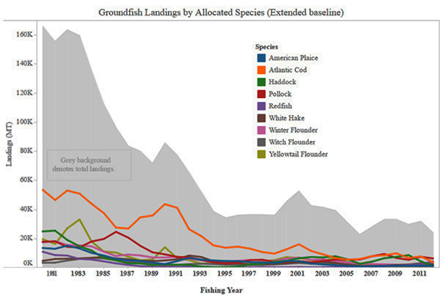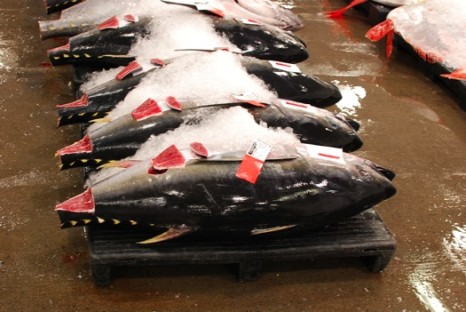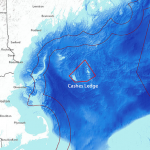Tag Archives: MSY

Fishery Mismanagement: FishNet USA – Choking on good(?) intentions
From the article: We have fisheries that are on the verge of collapse while the fish stocks that support them are healthy. There is a wanton disregard for the health of the businesses that depend of fishing, a disregard that wasn’t really there until the environmental community, funded by a handful of “charitable” mega-foundations (including the Gordon and Betty Moore Foundation), started to interfere in the federal fishery management process. Having healthy fish stocks, their supposed goal, is meaningless without healthy businesses benefitting from the utilization of those stocks. Today the economic effects of management actions on fishing and fishing dependent businesses are at best given lip service; the only thing that really matters when management decisions are considered is whether or not “overfishing” will be ended. The argument for the almost total focus on the health of the stocks, a concept that is exemplified by the above four sources of uncertainty from a study that was paid for – surprise, surprise! – by one of the mega-foundation that has spent many millions of dollars on “fixing” fisheries, is that healthy fish stocks are supposed to mean healthy fisheries. The present condition of the New England groundfish fishery shows how wrong that supposition is. Read the full article, click here 11:41
Nils Stolpe: While it’s called fishery management, it’s not even close – Managing fishing, not fish
“At the global scale, probably the one thing currently having the most impact (on the oceans) is overfishing and destructive fishing gear.” (former National Oceanic and Atmospheric Administration head Jane Lubchenco in an interview on the website Takepart.com on April 7, 2010.) The Deepwater Horizon oil spill catastrophe began on April 20, less than two weeks later. Each year in the U.S. hundreds of millions of tax dollars are spent on what is called fishery management. It’s called fisheries management in the Magnuson-Stevens Fishery Conservation and Management Act. Read the article here 19:14
How the Cold War depleted our oceans and led to Japan’s $37,000 tuna – Really?
 Though the price one Tokyo sushi-maker paid for a Pacific bluefin tuna marks a sharp drop from recent peaks, $35,000 isn’t chump change. Given the species’ scarcity, it’s also not surprising. In Nov. 2014, it was re-classified as “vulnerable,” meaning it’s in danger of extinction.This scarcity isn’t just a tuna thing. and illegal fishing mean that stocks in every corner of the sea are disappearing at an unsustainable pace. Though many blame the – hoo boy, Read the rest here 17:52
Though the price one Tokyo sushi-maker paid for a Pacific bluefin tuna marks a sharp drop from recent peaks, $35,000 isn’t chump change. Given the species’ scarcity, it’s also not surprising. In Nov. 2014, it was re-classified as “vulnerable,” meaning it’s in danger of extinction.This scarcity isn’t just a tuna thing. and illegal fishing mean that stocks in every corner of the sea are disappearing at an unsustainable pace. Though many blame the – hoo boy, Read the rest here 17:52












































